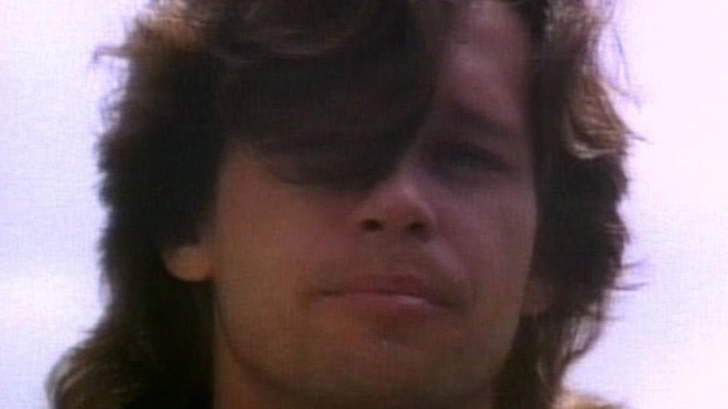After spending years building a reputation, after a series of artistic and commercial mistakes, John Cougar Mellencamp has become part of the nucleus of rockers who in the eighties have given a strong shake to American music.
His 1983 album, ‘Uh-huh’ thrilled the critics, receiving glowing praise: the music was compared to the quintessential rock band, The Rolling Stones. ‘Pink Houses’ became a small classic, whose strength lies essentially in the simplicity of its construction. As a guitarist he was, more than ever, in possession of his own technique, concise, direct and, precisely for this reason, extremely effective: at the same time, his stature as a composer was constantly growing.
‘Pink Houses’ was John’s most misunderstood song, he was inspired to write this song when he saw a black man holding a black cat on his front lawn – cool and calm:
“[The man] was sitting on his front lawn in front of a pink house in one of those shitty, cheap lawn chairs. I thought, ‘Wow, is this what life can lead to? Watching the fuckin’ cars go by on the interstate?,’” he told Rolling Stone in 2013. But there was more to that.
He continued, “Then I imagined he wasn’t isolated, but he was happy. So, I went with that positive route when I wrote this song.”
Lyrically, it was a straightforward approach. “There’s a black man with a black cat / Living in a black neighborhood / He’s got an interstate running’ through his front yard,” he depicts. “You know, he thinks, he’s got it so good / And there’s a woman in the kitchen cleaning up evening slop / And he looks at her and says, ‘Hey darling, I can remember when you could stop a clock.”
Just by an observation of one man’s existence in the interstate of Indianapolis, John Mellencamp took a great issue with American life. In fact, the song wasn’t the way many think it is. “This one has been misconstrued over the years because of the chorus – it sounds very rah-rah. But it’s really an anti-American song,” he told Rolling Stone in the same interview. “The American dream had pretty much proven itself as not working anymore. It was another way for me to sneak something in.”
Listen to the song below:

